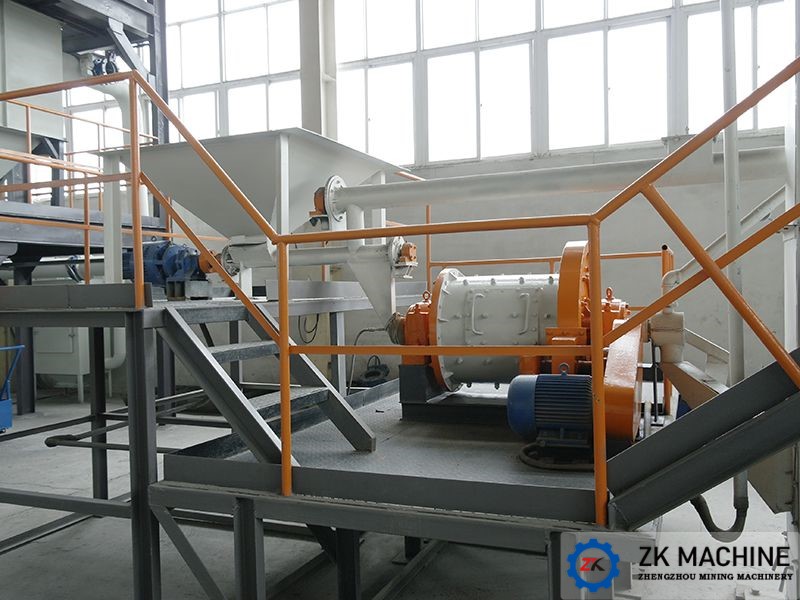- +8618937185591
- +8618937185591
- ec19@zkcorp.com
- +8618937185591


In today's era of rapid technological advancement, the importance of constructing pilot production lines in universities is becoming increasingly prominent, exerting a profound influence on academic research, industrial development, and social progress.
Facilitating the Transformation of Scientific Research Achievements
Universities are endowed with abundant scientific research resources and robust innovative capabilities, continuously generating a large number of cutting - edge research results. However, there exists a so - called "valley of death" between laboratory achievements and practical industrial applications. The pilot production line serves as the key bridge to cross this barrier. For instance, the cement pilot production line at Wuhan University of Technology provides a transitional platform for cement - related scientific research results to move from theory to practice. After the initial success of the new cement preparation process developed by the team of Zhengkuang Machinery in the laboratory, the pilot production line was used to simulate the industrial production environment, repeatedly optimizing and verifying the process parameters. Through the pilot - scale stage, the new process not only shortened the cement production cycle but also improved product quality, enabling the transfer of technology to enterprises and transforming scientific research results into real productive forces, significantly increasing the conversion rate of scientific and technological achievements.
Cultivating Interdisciplinary Talents
Traditional higher education focuses mainly on theoretical knowledge teaching, resulting in students having relatively weak practical abilities. The pilot production line offers students a real - world practical scenario. Taking the cement pilot production line as an example, students participate in the entire process, from raw material processing, equipment operation, production process monitoring to product quality control. This not only allows them to integrate multidisciplinary knowledge such as materials science, mechanical principles, and automatic control learned in the classroom but also enables them to exercise their problem - solving abilities, innovative thinking, and teamwork spirit in practice. For example, during the operation of the intelligent control system, students deeply understand the application of automatic control technology in industrial production by monitoring production parameters in real - time and adjusting the equipment operation status, growing into interdisciplinary talents with both theoretical knowledge and practical experience, meeting the industry's demand for high - quality personnel.
Promoting Interdisciplinary Integration and Innovative Development
Pilot production lines involve knowledge and technologies from multiple fields. The cement pilot production line, for example, encompasses multiple disciplines such as materials science, mechanical engineering, automatic control, energy, and environment. During the construction and operation, teachers and researchers from different disciplines participate jointly, breaking down the barriers between disciplines. This interdisciplinary cooperation promotes the emergence of new research directions and innovative achievements. For example, the combination of waste heat recovery technology and intelligent control systems has achieved the coordinated optimization of efficient energy utilization and intelligent regulation of the production process, promoting the in - depth development of disciplines and enhancing the overall scientific research level of universities.
Serving Local Economy and Industrial Upgrades
As an intellectual support for regional development, universities, through pilot production lines, become powerful tools for promoting local economic development. In the cement industry, for example, in the face of the technological upgrading needs of local enterprises, the pilot production lines in universities can, through the industry - university - research cooperation model, help enterprises overcome technical difficulties, improve product quality and production efficiency, and assist the local cement industry in achieving green and efficient transformation and development. At the same time, the pilot production lines in universities can also attract the agglomeration of related industries, drive the coordinated development of upstream and downstream industrial chains, form an industrial cluster effect, inject new vitality into local economic growth, and enhance regional economic competitiveness.
In conclusion, the establishment of pilot production lines in universities plays an indispensable role in promoting the transformation of scientific research achievements, talent cultivation, promoting disciplinary development, and serving the local economy. It is an inevitable choice for universities to fulfill their social responsibilities and meet the needs of the times. Henan Zhengkuang Machinery Co., Ltd., after years of development, has grown into a high - tech enterprise integrating scientific research, design, manufacturing, installation, commissioning, and operation support. It specializes in the R & D and production of complete sets of systems for environmental protection, building materials, mining, and metallurgical process technologies and equipment.
In response to the diverse needs of customers, the company can respond quickly and provide customized complete pilot production line solutions, covering all aspects from equipment selection, component design, equipment layout to electrical system planning. The company's self - built pilot production line has the ability to process a variety of materials, including processes such as crushing, screening, grinding, batching, granulation, drying, calcination, and cooling, providing comprehensive technical services and support to customers.